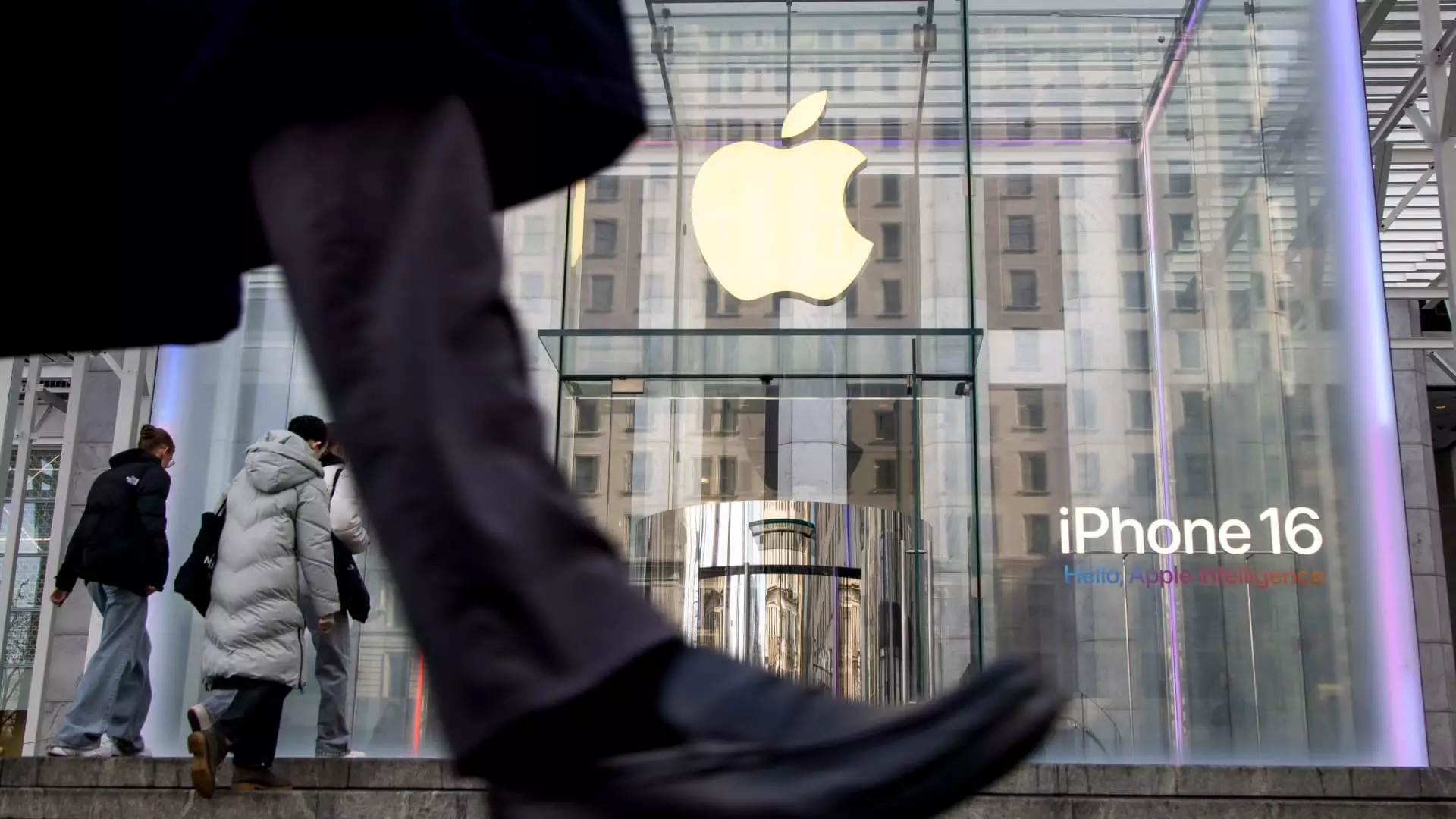Imagine standing in a grocery store aisle, staring at prices that seem to rise overnight. As of now, an overwhelming 85% of Americans are nervously eyeing their wallets due to looming tariffs that threaten to spiral into an economic crisis. A recent survey by NerdWallet captures a disheartening sentiment: the prospect of higher prices tied to government policies weighs heavily on a majority, causing them to rethink their spending habits and consider a future filled with financial turmoil. The ongoing tariff debates, while momentarily paused, have left lasting scars on consumer confidence, resulting in palpable anxiety that is reshaping the American shopping experience.
The University of Michigan’s consumer survey highlights a 30% drop in sentiment since December, a clear indication that uncertainty breeds distrust. With the latest dip of 11% lying heavier than anticipated, the numbers tell a story of economic insecurities fueled by the fear of trade wars, reminding citizens that they are not merely passive observers in the economy; they are active participants who feel the cuts of policy decisions in their daily lives. As we navigate through these turbulent waters, the implications of government actions ripple through every household.
The Dreaded Price Tag: Households Grapple with Rising Costs
What might this mean for the average American household? Experts from Yale University’s Budget Lab estimate that tariffs could impose a staggering annual cost of around $3,800 on families. For many, this isn’t just a number; it’s a formidable reality that relegates them to making difficult financial choices. Kimberly Palmer, a personal finance expert at NerdWallet, encapsulates the emotional weight of these decisions, stating, “Most Americans are worried about tariffs, and it’s actually impacting their spending plans.” The struggle is both psychological and economic, as consumers no longer merely evaluate their budgets but also grapple with stress influenced by external economic forces.
In a stark response to these pressures, many plan to reevaluate their immediate financial priorities—45% expect to scale back on non-essentials, while 33% contemplate reducing their spending on necessities. This radical shift toward savings and frugality is indicative of a collective sense of foreboding; savings have become a refuge from uncertainty, a defensive stance against the specter of an impending recession. With consumers tightening their purse strings, sectors reliant on discretionary spending can expect to feel the chill.
Making Tough Choices: The Delicate Balancing Act of Financial Health
As if confronted with a proverbial rock and a hard place, individuals are facing compounded financial burdens against the backdrop of rising prices. Analysts like Stephen Kates argue that rising tariffs not only complicate day-to-day expenditures but also introduce a level of unpredictability that can decimate long-term financial plans. Amidst this chaos, Kates offers a straightforward prescription: an emergency fund. He emphasizes the importance of saving to shield oneself against economic strain, advocating for a safety net that covers at least one to three months of essential expenditures.
For those already burdened with debt, this approach may feel counterintuitive. Nevertheless, prioritizing an emergency fund over retirement savings—while essential—does not negate the importance of paying down high-interest debts. Kates suggests employing the “debt avalanche” strategy, which can free up cash flow and provide immediate relief from the weight of financial obligations. This method underscores a more proactive approach to personal finance, encouraging individuals to confront their fiscal challenges while also preparing for an unpredictable future.
The Personal Finance Landscape: Tariffs as a Catalyst for Change
While tariffs and economic policies can feel overwhelming, they also serve as a stark reminder of the interconnectedness of consumer behavior and governmental action. As individuals recalibrate their financial strategies, the long-term impacts of these adjustments could redefine the economic landscape. With more people leaning towards saving and scrutinizing their spending, it raises a question: how will this newfound caution affect broader economic growth?
As consumers navigate this adversarial economic climate, they are not only adjusting their personal financial habits but also shaping the future economic narrative. The lessons learned today will undoubtedly forge stronger, more resilient financial strategies tomorrow. Ultimately, the current tariff-related uncertainties compel Americans to reassess their financial landscapes, igniting a much-needed conversation about fiscal responsibility and responsiveness in a rapidly changing world.

